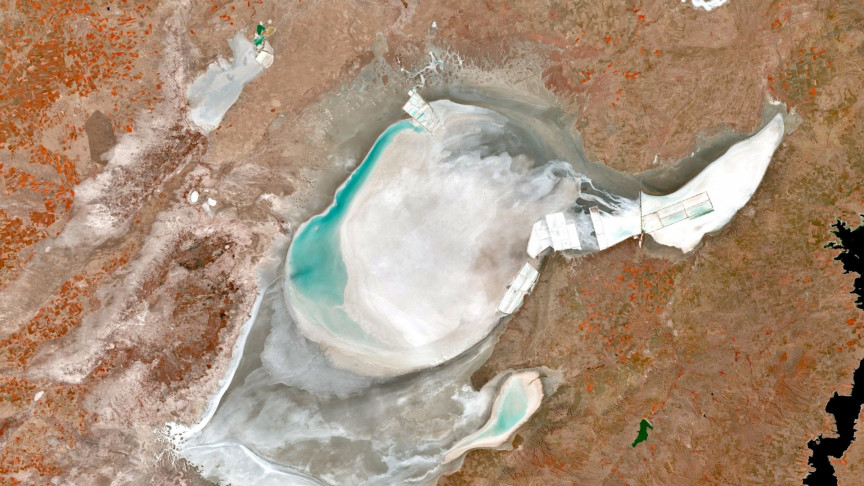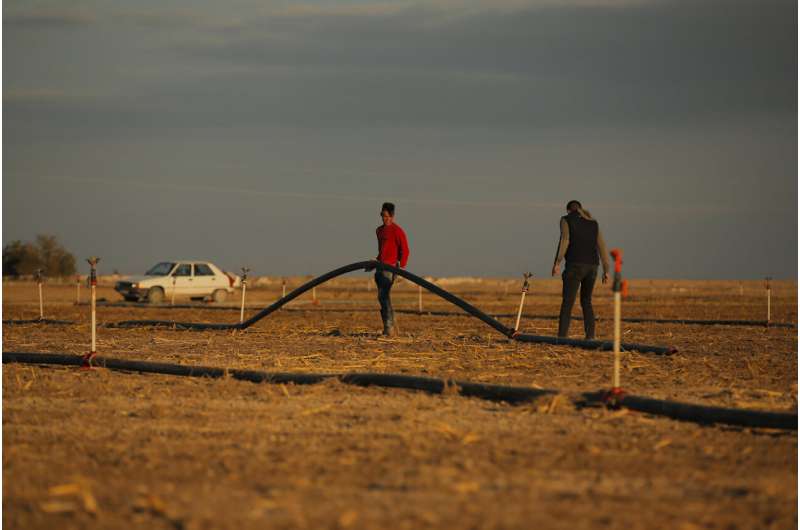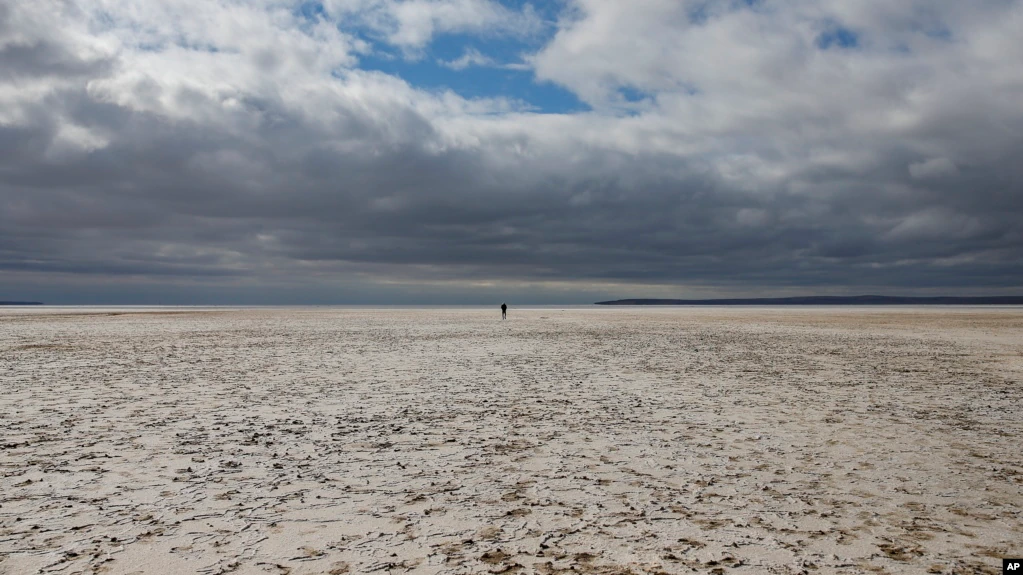Lake Tuz, Turkey’s second-largest lake, is completely drying up, according to new satellite imagery captured by the European Space Agency’s Sentinel-2 satellite.
For hundreds of years, Lake Tuz has been home to massive flocks of flamingos that migrate and breed there when the weather is warm. This summer, however, thousands of dead flamingos were discovered scattered across the dried-up lakebed. Tuz is one of the world’s largest hypersaline lakes, which has dried up due to climate change-related drought and irrigation.

Levent Kurnaz is a scientist at Bogazici University’s Center for Climate Change and Policy Studies. He told the Associated Press, “We have rising temperatures and decreasing rain, and on the other side, the water needed for irrigation in agriculture. It’s a bad situation all over Turkey at the moment.”
Lake Tuz ordinarily expands and recedes away with the changing seasons. However, in recent years, the receding portion of the cycle has become more prominent, leaving less and less water behind, until the effects of agriculture, compounded by climate change, have left nothing but an expanse of waterless salt in its wake.
In addition, poor government agricultural policies are a major contributor to the lack of water in Turkey’s lakes. Corn, sugarbeets, and alfalfa have become popular crops in the area, but they take an awful lot of water. As a result, groundwater supplies have been depleted. In addition, thousands of unauthorized wells have been dug, and streams that supply water to the lake have dried up.

Like other saline lakes, Lake Tuz forms when inflowing water is trapped in the lakebed. This water absorbs salt and other minerals from streams and rivers before evaporating. Every spring, rainwater, and snowmelt flow into Lake Tuz, shaping the lake. Despite the lake’s shallowness, more water is evaporating than ever before, leaving 3 inches (8 cm) of salt behind. This excess residue has aided salt mining, drawing on Lake Tuz’s estimated 250 million tons of salt reserves. This lake supplies 60 percent of the country’s salt, with a large portion exported to 60 other countries.
Because salt deposits in Lake Tuz require a constant water flow, salt exports may be slowed as the lake water level has dropped in the past few years. Climate change and a severe drought affecting water supply, mounting agricultural and industrial demands are the reasons for this, as a large portion of the water is diverted before it can soak up the salt.
Unless no significant measures are taken to protect the lake, it may be lost in the next 30 years, according to Muazzez Elik Karakaya, a faculty member at Konya Technical University.

“As water decreases due to global warming, salt precipitation will also decrease,” said Karakaya. “This will have negative cultural consequences. Because more than a hundred bird species live in the region. If salt precipitation does not occur as the water decreases, a clayey sediment area will form on the surface of the lake. This means carrying a lot of dust, which can lead to many respiratory diseases.”


